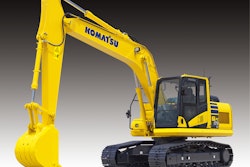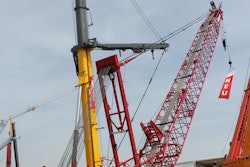EPA is announcing the availability of $4 million in grant funding to establish clean diesel projects aimed at reducing emissions from marine and inland water ports, many of which are in areas that face environmental justice challenges.
“Ports are essential to the nation’s economy and transportation infrastructure, but they also are home to some of the nation’s toughest environmental challenges,” says Janet McCabe, Acting Assistant Administrator for EPA’s Office of Air and Radiation. “These grants will help port authorities to provide immediate emissions reductions that will benefit those who work and live in port-side communities.”
Most of the country’s busiest ports are located near large metropolitan areas and, as a result, people in nearby communities can be exposed to high levels of diesel emissions. Older diesel engines can emit large amounts of air pollutants, such as nitrogen oxides (NOx) and particulate matter (PM). These pollutants are linked to a range of serious health problems including asthma, lung and heart disease, other respiratory ailments, and even premature death. Clean diesel projects at ports, employing readily available technology, will make immediate emissions reductions and provide health benefits.
This grant competition is available under the Diesel Emission Reduction Act (DERA) Program and is the first competition to focus on solely reducing emissions at ports. DERA funds are used to clean up the legacy fleet of diesel engines that were produced before more recent environmental standards. This grant competition is intended to help solve some of the complex air quality issues in port communities.
Under this competition, EPA anticipates awarding between two and five assistance agreements to port authorities through the DERA program. Port authorities, governmental or public agencies that operate ports, are able to work directly with a variety of fleet owners to lower emissions from different types of equipment used in a port setting. Projects may include drayage trucks, marine engines, locomotives, and cargo handling equipment at marine or inland ports. Priority will be given to ports located in areas of poor air quality.
The objectives of the assistance offered under this program are to achieve significant reductions in diesel emissions in terms of tons of pollution reduced and reductions in diesel emissions exposure from fleets operating at ports. The program also seeks to build partnerships among port stakeholders to promote ongoing efforts to reduce emissions from port operations. Community groups, local governments, terminal operators, shipping carriers, and other business entities are encouraged to participate through partnerships with eligible port authorities. The closing date for receipt of proposals is February 13, 2014.
This funding opportunity is being offered in addition to EPA’s annual National Clean Diesel Campaign (NCDC) Funding Assistance Program. EPA intends to make future awards under the NCDC Funding Assistance Program, subject to the availability of funding.
Visit the EPA's website for more information and to access the Request for Proposals and other documents.
EPA funding clean diesel projects at marine and inland water ports
New funding from the EPA will help marine and inland water ports implement readily available technologies to help reduce emissions.
Dec 11, 2013



















